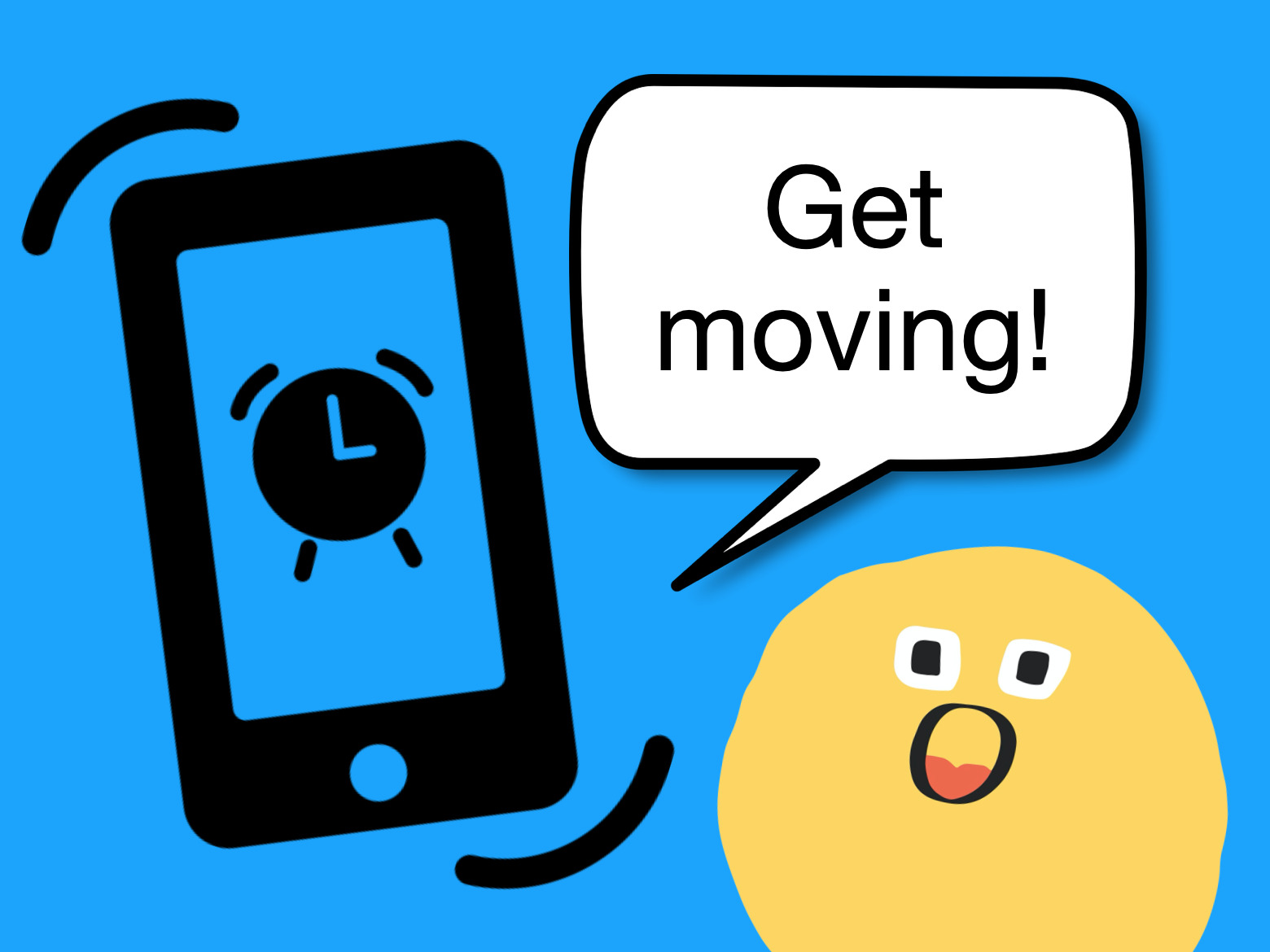
Do you ever feel like you’re running at full speed down a mountain?
This is what my life used to feel like.
I was always in a rush.
Always cutting it fine.
Often running late.
I was late for class.
Late for dinner at friends’ houses.
Late for meetings.
In my world, being late was the norm. It was perfectly acceptable to drag your feet and rock up an hour late to an event.
So, I had to learn the hard way.
One morning, I was running late for school. I rocked up to form room three minutes late, and I knew straight away I was in trouble.
My form room teacher said:
“Jane, go to student services to get a late note. You’ve been late too many times. It’s not good enough”.
When you were told to go to student services, this was bad news. You were being told to do the walk of shame.
I pleaded with her:
“Please, no! Come on! It was my dad’s fault. He was late in driving me to school. My dad is always running late”.
My form room teacher wasn’t buying my excuses.
To this day, I can still remember that walk to student services. I felt frustrated and stressed out of my mind.
It wasn’t fun being late all the time. I wanted to be on time and feel less rushed and more in control. But I had no idea how to break this bad habit.
One thing was clear to me: people weren’t happy when I was late. People would get annoyed. Passive aggressive vibes were always coming my way.
Fast forward 20 years: I’m no longer someone who is always running late and rushing around. I’m certainly not perfect, but I can say I’ve come a long way.
From my experience, I can tell you it’s exhausting being someone who is always running late for things. When you live like this, you add so much unnecessary stress, drama, and anxiety to your day.
Your days take on a frenetic feel as you rush from one thing to the next.
But there’s also a larger cost to society.
This is what the famous Good Samaritan study examined. It looked at how being rushed and time pressured impacted people’s behaviour and thought processes.

In this fascinating study, researchers conducted a psychological experiment with a group of theology students who were training to be church ministers. This was one of those psychological experiments where participants were deceived (they were told the researchers were studying one thing when they were studying something else). Here’s what happened . . .
The participants were told they were participating in a study on jobs for theology students and were asked to fill in some questionnaires (this was the bogus part of the experiment).
The real experiment took part in the next phase . . .
After the questionnaires were filled in, the participants were told they had to deliver a presentation in another university building, which was a short walk away. The students were instructed they would need to tell the story of the Good Samaritan (a story about a Samaritan who helps a stranger who has been robbed, beaten up by bandits and left half dead).
They were handed a map and provided instructions on how to get to the building, which involved passing through a dim, dingy, and drab alley.
Students were placed in one of three groups:
• High-hurry group
• Intermediate-hurry group
• Low-hurry group
After they were handed the map, the students in the high-hurry condition were told:
“Oh, you’re late. They were expecting you a few minutes ago. We’d better get moving. The assistant should be waiting for you, so you’d better hurry. It shouldn’t take but just a minute.”
Students in the intermediate-hurry group were told:
“The assistant is ready for you, so please go right over.”
Students in the low-hurry group were told:
“It’ll be a few minutes before they’re ready for you, but you might as well head on over. If you have to wait over there, it shouldn’t be long.”
Stay with me because here’s where things get interesting . . .
While the participants walked to the building where they’d be delivering the Good Samaritan story, they encountered a slumped victim in the alley. This victim was a plant by the researchers.
The victim was an actor who was pretending to be someone in need of help. The actor wore shabby clothes and was slumped in the doorway with his head down and eyes closed. He wasn’t moving.
All the students encountered this actor. As the students walked past, the actor coughed twice and groaned (you couldn’t miss him!).
The participants didn’t know that their behaviour was under surveillance. The researchers observed how the students in each group responded to the actor. Did the participants help the man slumped in the doorway? And if so, how did they help?
Which group do you think was more likely to help the man?
Here’s what they found . . .
Low-hurry group: 63% offered help
Intermediate-hurry group: 45% offered help
High-hurry group: 10% offered help
The researchers concluded:
“A person not in a hurry may stop and offer help to a person in distress. A person in a hurry is likely to keep going. Ironically, he is likely to keep going even if he is hurrying to speak on the parable of the Good Samaritan, thus inadvertently confirming the point of the parable. (Indeed, on several occasions, a seminary student going to give his talk on the parable of the Good Samaritan literally stepped over the victim as he hurried on his way!).”
As an aside, after the experiment, the participants took part in a debriefing session where they were told what the research was actually about. The researchers made it clear that they were studying the social forces (i.e. the conditions) a person finds themselves in, and they were not passing judgment on the students’ behaviour.
Control the controllables
In life, we can’t always control the conditions we find ourselves in (e.g., a workplace that imposes a ridiculous workload on staff). But some things are often within our control that we can do something about to be less rushed and time pressured.
Doing these things can help us to feel more present, have greater awareness of our surroundings, feel calmer and less stressed, and experience more control of our time.
I’m going to share with you some habits, ideas, and practices you can implement to help you in this area. I’ll start with the simplest habits before progressing to the deeper, more complex practices.
Wear a basic watch
One of the best tools you can buy is a basic watch (preferably one that doesn’t have fancy features like the ability to receive calls or texts).

My advice is to wear a watch and look at it regularly.
A lot of people use their phones to check the time, but this can be a time trap (I find my phone way too distracting).
You may look at your phone to check the time but find yourself checking social media while you’re at it. Without any stopping mechanisms in place, you can get sucked in and thrown completely off course.
Tiny Habit:When I wake up in the morning, I will put on my watch.
When I get distracted, I will check my watch and schedule and ask “What do I need to be doing right now?”
Do regular check-ins
The modern world is a distracting place. Even without access to your phone, it’s easy to get derailed. Along with checking your watch regularly, check your timetable/planner/to-do list. Ask the following questions:
• What do I need to be doing right now?
• Am I doing what I need to be doing?
• Is this the best use of my precious time and energy?
Tiny Habit:When I notice I am wasting time, I will look at my to-do list.
Set up prompts
A prompt is a reminder. It’s anything that triggers you to move from one task or place to another.
When I need to be somewhere by a certain time, I set my alarm for when I need to leave the house. When I hear the alarm, I grab my bag and take off. No excuses.

You should have a rough idea of how long it takes to get to school or work. Set your alarm for when you need to leave. When you hear your alarm, get moving.
Tiny Habit:
When I hear my alarm, I will pick up my bag and go.
Resist the urge to squeeze in extra tasks.
It’s tempting to cram in a few more tasks before you leave for work or school (e.g., sending one more text or watching one more short video). But ask yourself, “Do I have time to do this?”
The answer is most likely no.
Tiny Habit:When I feel tempted to do another task, I will ask “Do I have time to do this?”
Avoid using social media first thing in the morning
When I was a kid, there was no Internet and no smartphones. But we had morning cartoons on the TV.
These cartoons were fun to watch and could easily capture your attention. But you still had some awareness of the time because the time was always displayed in the corner of the screen.

The major problem with most social media apps is they don’t contain clear time cues. This is a deliberate design decision. They want you to lose track of time. Thirty minutes online can feel like three minutes.
The solution is to stay offline in the mornings. If you must go online, have a strict log-off time. I recommend setting an electronic timer for a set time or using an Internet Blocker app to kick you off.
I use an Internet blocker app called Freedom. This app cost me a bit of money but there’s a free alternative called Cold Turkey.
Tiny Habit:
When I feel the urge to go on social media in the morning, I will set a timer for 5 minutes.
Do less and do it better
Are you feeling time pressured and running late because you’re trying to do way too much?
Our modern culture encourages us to do more, be more, have more, sleep less, etc. It’s not healthy or sustainable.
If this is the case for you (i.e. you’re overcommitted), I realise it may not be your fault. Maybe your boss or teachers have unrealistic expectations about what you can accomplish in a day.
All that being said, your packed schedule may also be due to your inability to say no. Perhaps you feel like you need to say yes to every opportunity that comes your way to build an impressive resume and stand out from the crowd. If so, I get it (I’ve been there).
The major problem with doing too much is it leaves you feeling exhausted. You’re not able to fully engage in the task. As you do the activity, you’re worrying about the next thing you need to do.
If you’re doing a bunch of stuff and not enjoying it, perhaps it’s time to cut back on a few activities.
When you commit to doing less stuff (but more meaningful activities that align with your values), you can do that stuff better. You can also extract a lot more joy from the process.
Tiny Habit:
When I am presented with a new opportunity, I will ask “Is this important to me? Is it something I want to be doing with my time?”
Focus your mind
In the book Excellent Advice for Living: Wisdom I Wish I’d Known Earlier, Kevin Kelly states:
“You don’t need more time because you already have all the time you will ever get; you need more focus”.

If you find yourself getting distracted by social media apps and YouTube, it’s time to double down on developing your focus muscles.
You can develop your focus muscles by adopting several different habits that relate to the food you put in your mouth, incorporating regular movement and rest breaks into your day, and creating a focus-friendly environment.
This is an area I’ve been working on for a while. What I’ve noticed is when I focus my mind on one task at a time, I can get twice as much done in the time I have available. But I also find that I enjoy the process a lot more, too.
Tiny Habits:
After I stand on my office mat, I will put away three objects on my desk (removing visual clutter)
When I notice my phone is on my desk, I will pick it up and put it in another room.
After I finish doing a deep work sprint (45 minutes), I will do some gentle shoulder rolls.
To sum up
These habits may sound lame and boring, but they can inject a sense of power, control, ease and even happiness into your day.
When you’re less rushed, you’re less stressed. Because you’re less stressed, the people around you are also more likely to be less stressed (calm is contagious). It also means we end up with a more helpful and thoughtful society.
In our modern world, where we find ourselves increasingly polarised and tribalised, being less rushed and time pressured is something worth striving for.
